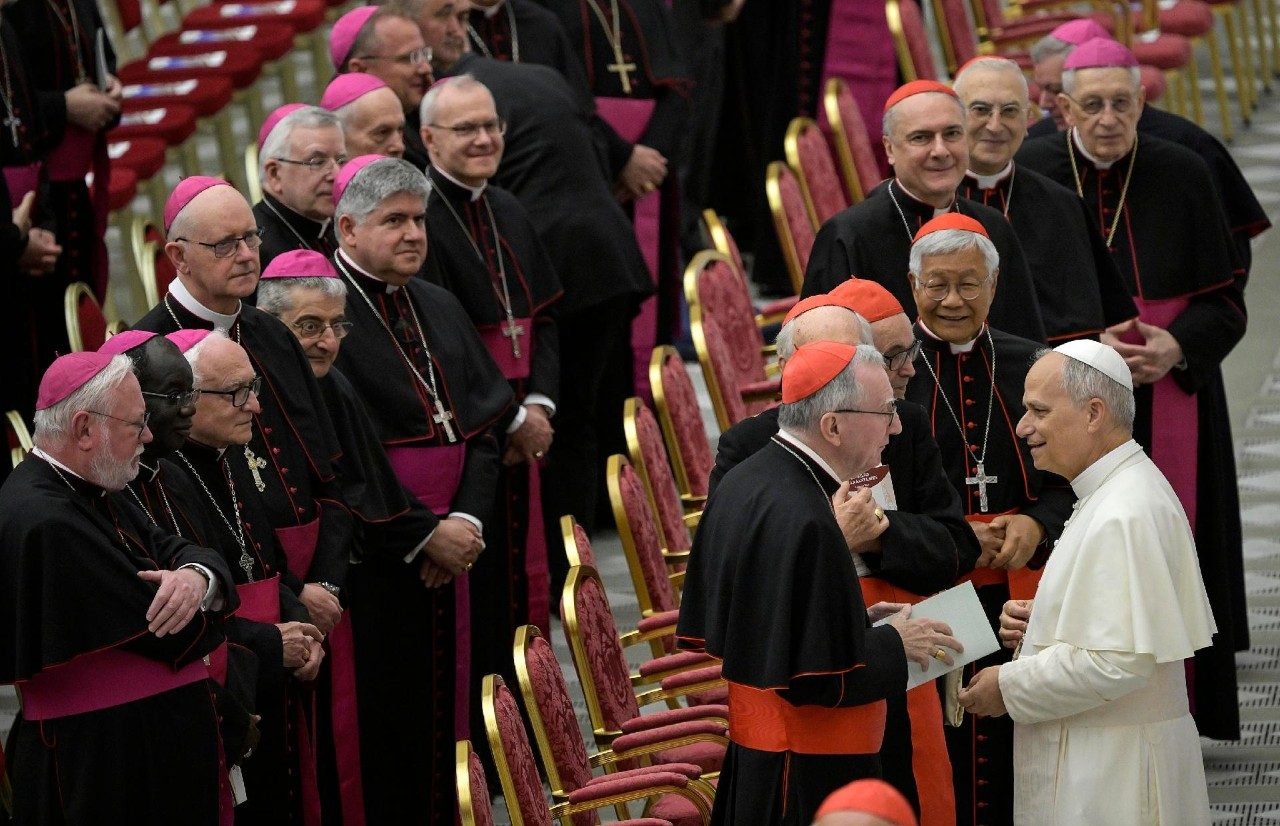
In an interview marking the Jubilee of the Holy See and an upcoming audience with Pope Leo XIV, Cardinal Secretary of State Pietro Parolin describes Apostolic Nuncios as bridges that link the Pope with local Churches, the Church with States, and the world’s wounds with the hope of the Gospel.
By Vatican News
“The Pontifical Representative is a bearer of the diplomacy of the Gospel,” and it is his duty “to commit himself to mediation and dialogue” and to become a sower of peace, said Cardinal Pietro Parolin in an interview with Vatican Media.
The Vatican Secretary of State was speaking on the occasion of the Jubilee of the Holy See, celebrated on Monday 9 June, and on the eve of Pope Leo XIV’s audience with participants in the Jubilee and the meeting of Pontifical Representatives, scheduled for Tuesday, 10 June.
Your Eminence, the Jubilee of the Holy See offers an opportunity for encounter and reflection on how the Church engages with the world. What significance does this event hold for the Diplomatic Corps of the Holy See, particularly for the Apostolic Nuncios?
The Jubilee of the Holy See presents an important moment of unity, even for the Pontifical Representatives. Each of them lives a kind of continual “pilgrimage,” without the possibility of settling permanently in one place. It’s a life on the move—yes—but not a solitary one. The Jubilee brings to mind the image of a family, spread across the world yet united, gathering in Rome to be close to the Pope.
This gathering makes clear the bond between the Church’s local and universal dimensions. The Pontifical Representative is first and foremost a bridge between the Vicar of Christ and the communities to which he is sent. At the same time, he sustains the connection between local Churches and the Apostolic See. The Secretariat of State plays a coordinating role in maintaining this unity, supporting the mission of the Pontifical Representatives both in Rome and throughout the world.
As you noted, the Apostolic Nuncios represent the Holy Father to local Churches and civil authorities. What is unique about their role, and how do they balance their pastoral and diplomatic responsibilities?
Apostolic Nuncios are indeed the Pope’s representatives to national governments and international institutions. In that sense, their role is clearly diplomatic: engaging with civil authorities, working to heal divisions, and promoting peace, justice, and religious freedom. They do this not in pursuit of national interests, but guided by a Gospel-centered vision of the world and international relations.
However, their role cannot be reduced to a purely institutional function. It must be grounded in a true pastoral presence. A Nuncio is, above all, a man of the Church—a pastor—who is called to follow the example of Christ the Good Shepherd. Being a pastor means drawing close to bishops, priests, religious, and the communities they are sent to serve. It requires an ecclesial outlook—a priestly awareness of responsibility for others.
In this way, the Nuncio becomes a bridge between the Successor of Peter and the local Churches, between the Church and States, and between the wounds of the world and the hope offered by the Gospel.
What qualities do you consider essential for a Pontifical Representative, especially in today’s complex historical context?
I would highlight three. First, humility as a disposition of the heart. It allows one to “be small” and trust that the Lord can accomplish great things through us. In a world plagued by hatred and violence, there is a risk of falling into pessimism. Yet, when faced with difficult or unexpected responsibilities, we place our confidence in the grace that accompanies and sustains the mission.
Alongside humility, I would stress evangelical zeal. The Pontifical Representative is a bearer of the diplomacy of the Gospel, entrusted with bringing the light of Christ to even the most remote corners of the Earth.
Finally, the Representative must be a man of reconciliation. The mission of pontifical diplomacy is to support the Holy Father’s efforts to build a world rooted in truth, justice, and peace. In today’s context, the Pontifical Representative is called to dedicate himself to mediation and dialogue. This is the only way to weave the fabric of international cooperation and discern even the faintest will for peace among divided parties.
We must respond to the Holy Father’s call to be sowers of peace, recognising that in diplomacy, the other is not primarily an adversary, but a fellow human being with whom we are called to engage.
In a world that is constantly evolving, how does the diplomatic formation of young priests keep pace with contemporary challenges?
For 300 years, the Pontifical Ecclesiastical Academy has been responsible for forming young priests who are preparing to enter the diplomatic service of the Holy See. Its recent reform seeks to update and strengthen that formation so it can better respond to the complexities of the modern world.
The aim of this new phase in Vatican diplomacy is to send out representatives who are both professionally competent and deeply animated by an evangelical spirit. These diplomats are called to carry forward the Petrine Magisterium as instruments of communion, sowers of peace, and builders of relationships marked by solidarity and harmony among peoples.




